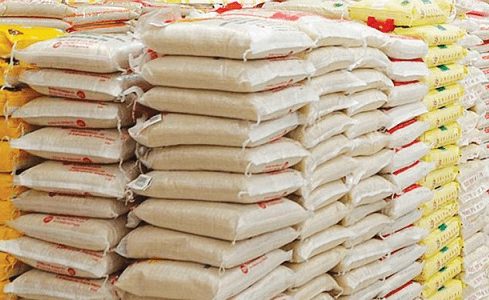Following the recent strengthening of the naira against the dollar, there has been a notable drop in the price of rice across various regions in Nigeria. In major cities like Lagos, Abuja, and Ogun, a 50-kilogram bag of rice, which was previously priced at around N90,000 in February 2024, has now decreased to an average of N67,000.
However, in communities near the borders, such as Imeko, Idiroko, and Oja-Odan in Ogun State, the price of rice is even lower, with a bag selling for around N49,000 or less. Further, border communities like Saki in Oyo State report even lower prices, with a bag of rice selling for N42,000.
This reduction in rice prices is particularly evident for foreign parboiled rice, which has seen a more significant decrease compared to local brands. This shift in prices comes after the ban on the importation of rice through land borders by former President Muhammadu Buhari in 2015, as well as restrictions on accessing foreign exchange for rice importers. However, the Central Bank of Nigeria lifted the ban on rice importation in October, allowing importers to access forex from the official market.
Despite the recent decrease in rice prices, there are still concerns about the affordability of other food items, such as beans and garri, which have continued to increase in price. While the reduction in rice prices is welcomed by consumers, economists emphasize the need for sustained stability in the market.
Factors contributing to the decrease in rice prices include changes in exchange rates, supply dynamics, and government policies. The recent appreciation of the naira against other currencies has played a significant role in making imported goods more affordable. Additionally, the decrease in transportation costs due to lower diesel prices has contributed to the drop in rice prices.
While some consumers have expressed relief at the decrease in rice prices, there are still regional disparities in price trends. In some areas, rice prices remain high, indicating potential challenges in achieving uniform pricing across the country.
























